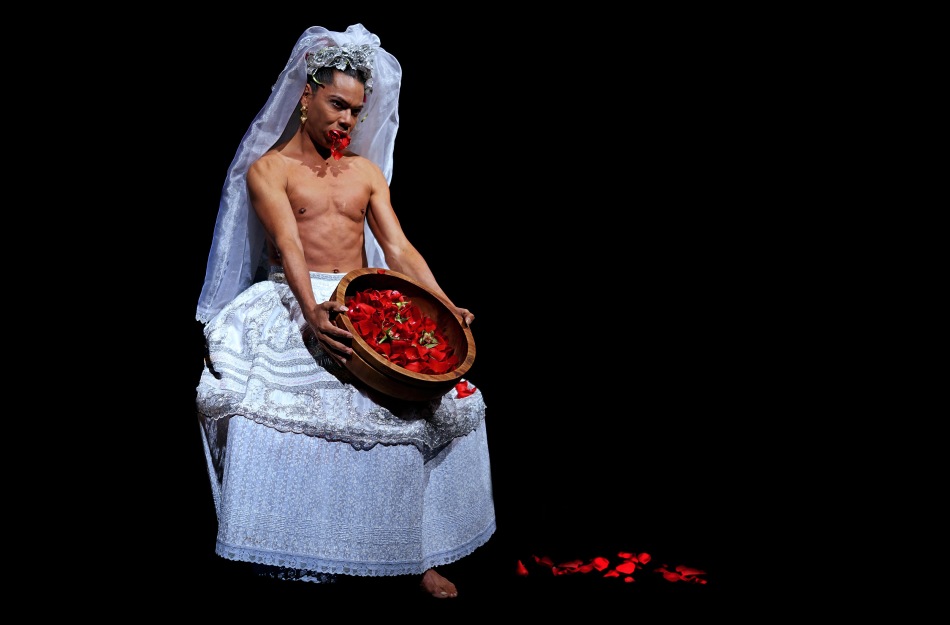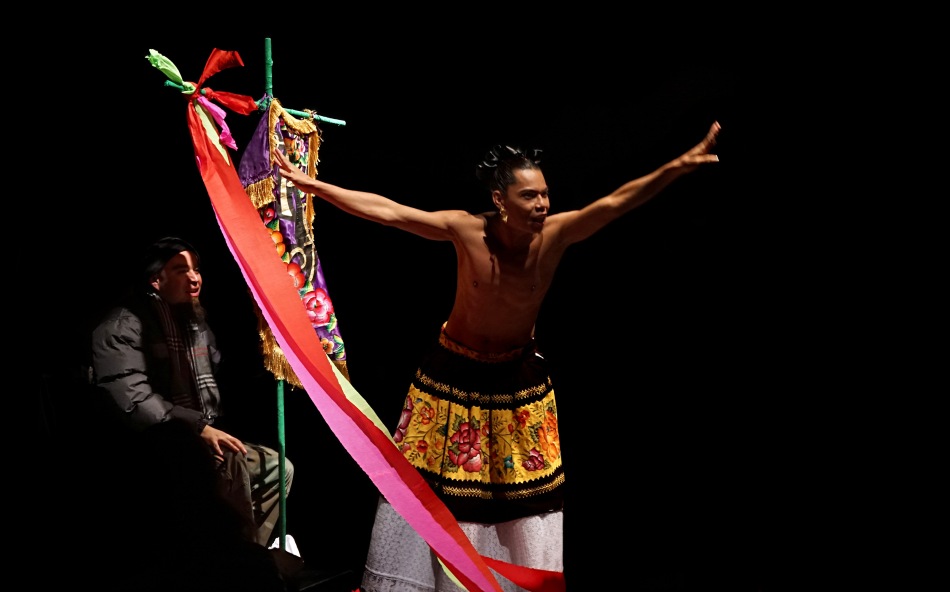“Carnes y sangre disidente glitcheadas”
Erika Bulle, Neo Performance Artist.
Mario Patiño, fotografìa original y ediciòn digital, 2017.
Erika Bulle, Performer. Mario Patiño fotografìa y ediciòn digital.2

Erika Bulle, Performer. Mario Patiño fotografìa y ediciòn digital. 1
Glitch art starts conversations that traditional art forms can’t
really access, just by the nature of how it’s created. How much do we
control our technology, and how much does it control us? Can technology
ever transcend the imperfection inherent in its human creators? What
does it mean if we can reclaim the “errors” in our computers, phones,
and cameras and repurpose them as our tools? The essence of glitch art
is pretty simple: humans subject themselves to technology and exert
control over it to a greater or lesser extent to produce a piece of
artwork that is a product of both the creator’s intention and the
device’s whims. There are themes inherent in this medium, then:
morbidity and destruction next to growth and regeneration, conflicts
between control and unpredictability, disassembling and re-appropriating
the systems that surround us, technological chaos versus human balance —
or vice versa.

Erika Bulle, Performer. Mario Patiño fotografìa y ediciòn digital.4
Glitch podría definirse como “un pequeño problema o fallo que evita
que algo se realice de manera exitosa o que evita que funcione como
debería”
Hoy en día el glitch es usado por multitud de artistas. La estética
del error, de lo imperfecto nos llama la atención. Es una manera de
introducir un mundo salvaje dentro de nuestros dispositivos digitales.

Erika Bulle, Performer. Mario Patiño fotografìa y ediciòn digital.7

Erika Bulle, Performer. Mario Patiño fotografìa y ediciòn digital.6
Erika Bulle, actualmente realiza el doctorado en artes y diseño en
FAD, UNAM. En la labor de producción plástica, cuenta con más de 10
exposiciones individuales, y varias colectivas. En el campo de
investigación del performance y el arte del cuerpo fue miembro del
colectivo SEMEFO a partir de 1990, participando en PAREDON, edificio
Rule, Centro Histórico, ECLIPSE para el museo Rufino Tamayo a cargo de
Juan José Gurrola, PANDEMONIUM, ENAP, EL CANTO DEL CHIVO, canal 22,
Sótano de la facultad de arquitectura. Posteriormente deja al colectivo
para integrarse a otros colectivos de arte acción presentándose en
XTERESA, Academia de San Carlos, entre otros lugares del interior de la
república.

















 Erika Bulle, Performer. Mario Patiño fotografìa y ediciòn digital.6
Erika Bulle, Performer. Mario Patiño fotografìa y ediciòn digital.6